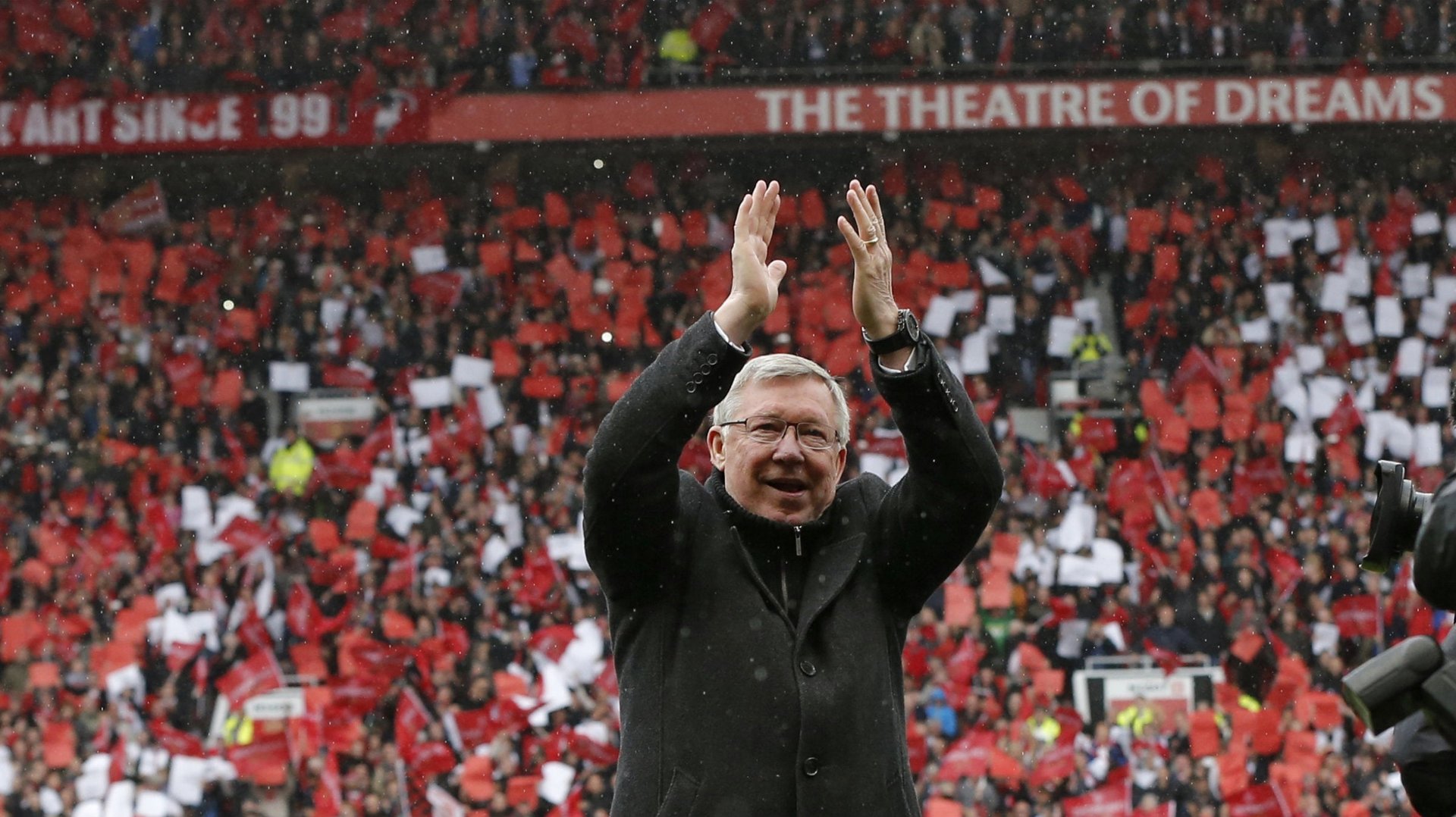The lesson every company should learn from Manchester United’s sorry succession saga
David Moyes was doomed from the start.


David Moyes was doomed from the start.
At least, that’s one way of reading the news yesterday that Manchester United sacked Moyes as manager after only 10 months in the job, with the English soccer club on course for its worst finish in more than 20 years.
Manchester United is the most successful club in England’s top professional league, with 20 domestic championships to its name. Moyes’s predecessor, Sir Alex Ferguson (pictured above), won 13 of those titles, including last year’s championship. Ferguson managed the club for 27 years, which if he were a corporate CEO would place him at the top of the rankings for tenure at S&P 500 companies, just below founders like Warren Buffett and Larry Ellison.
CEO succession is thorny at the best of times, but replacing a long-serving boss is particularly fraught, be it at a high-profile soccer club or a corporate boardroom. (And as a New York-listed multinational firm with more than $600 million in revenue, Manchester United is as much a corporation as a sports team.)
Wearing out your welcome
Studies of CEO tenure show that a company’s profitability generally suffers after replacing very short- and very long-tenured bosses. A study of American firms put the sweet spot for CEO tenure at 15 years, as measured by profitability of the firm three years after the boss’s departure. The average tenure of a CEO in the S&P 500 is currently around 10 years.
From Jeff Immelt at GE to Steve Ballmer at Microsoft to Tim Cook at Apple, few of the bosses groomed to take over where a long-serving CEO left off have achieved similar success or acclaim. For one thing, they “can only do worse” than their larger-than-life predecessors, says John Purkiss, head of the board practice at Veni Partners, a London-based executive recruitment firm. That is because conservative boards of directors usually charge new bosses with doing more of the same, although it is nearly impossible to replicate the combination of luck and skill that kept their predecessors in the top job for decades. They set themselves up for disappointment.
Boldness is required. Counterintuitively, this can mean appointing a successor with a daring new vision, perhaps one far removed from the company’s current course. This is not as crazy as it sounds, given how executives with extra-long tenures tend to work.
Know when to say when
Long-serving bosses, by definition, are canny operators. Taking credit for favorable market dynamics over which they have little control is a time-honored tradition. Knowing when to call it quits when those dynamics come to an end is another. And when that time comes, cementing one’s legacy by trying to go out on a high note can store up trouble for later.
At Manchester United, Ferguson benefited from a long stretch when the club’s financial firepower exceeded that of its rivals, giving it first choice of the world’s best players. The billionaires that bought teams across Europe in recent years have now eliminated this advantage. In his last season in charge, Ferguson also uncharacteristically rode an effective but ageing squad to his final league title, saddling his successor with a major rebuilding job. Ferguson is now a director at Manchester United, ensuring that he will continue to loom over whoever takes over his former position—a practice corporate governance experts generally frown upon.
However successful they are, long-lasting bosses should not allow directors (or shareholders) to sit back and relax. With each passing year of a long-serving CEO’s tenure, directors need to think more intently about succession planning. A big chunk of the value that the outgoing boss steadily created can be lost at a stroke if the transition isn’t handled with care.
Blaze a new trail
Instead of turning the firm into an ossified cult to the former leader, which will almost inevitably falter, a company that has grown around a dominant personality may be better off appointing a similarly bold manager with free rein to take it in a new direction. The conditions that enable a boss to stay in charge for multiple decades almost never last after the boss leaves, so when that happens a drastic change of strategy may be not just a good idea, but essential. Incremental changes are easier if there is more frequent turnover in the top job.
One of the biggest red flags that Manchester United’s directors missed was that Moyes saw the setup at the club and still wanted the job. The best executives, says Purkiss of Veni Partners, seek out opportunities that give them the most freedom to operate. That’s why many “join basket cases and turn them around,” he says. Alan Mulally at Ford is a good example.
The most successful club in the history of English soccer was not a basket case. That’s why the directors, seduced by the stability of the Ferguson years, appointed a new manager in his image—down to the fact that Moyes is a somewhat dour Scot, like Ferguson—and kept him on a short leash.
But as a coach, Ferguson was famously unsentimental about his players. He sold several stars at their peak (including David Beckham) and reinvested the proceeds in unproven but promising talent. As a result, he won trophies with a variety of squads that played with a wide range of styles.
It’s strange, then, that when the time came to replace Ferguson himself, the board seemed to ignore the manager’s own history of successful reinvention. It’s a lesson that other companies with long-serving leaders would be wise to heed.